Transportation Demand Management
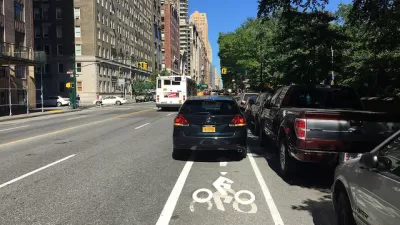
All Vehicle Traffic Imposes Danger. Vision Zero Requires Vehicle Travel Reduction Policies
Traffic safety initiatives must recognise that all vehicle travel imposes risks, and traffic reduction policies increase safety in addition to other benefits.

The 'War on Cars' Is a Bad Joke
There is no war on cars. Everybody, including motorists, benefit from a more diverse and efficient transportation system. Let there be peace!
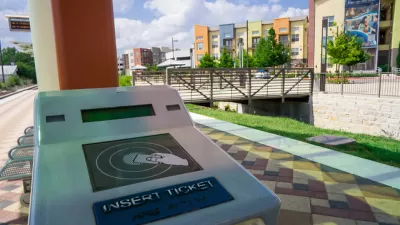
Austin Mulling New Incentives for Transit Riders
A proposed pilot program would text six new types of transit ridership incentives in the city of Austin.
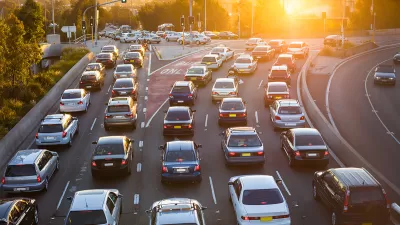
Breaking the Cycle of Automobile Dependency
Many current planning practices reinforce a cycle of increased automobile use, more automobile-oriented community redevelopment, and reduced mobility options. There are good reasons to break this pattern.
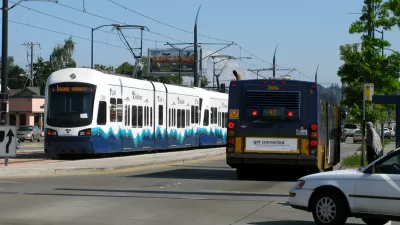
Reducing Motor Vehicle Traffic in Cities
The World Resources Institute's Transformative Urban Mobility program has produced two new guides that succinctly describe why and how cities can implement transportation demand management policies and programs.

Study: Unbundle Parking for the Most Effective Transportation Demand Management
A new study by Mobility Lab makes a strong case for unbundling parking from rent to inspire more sustainable transportation choices.
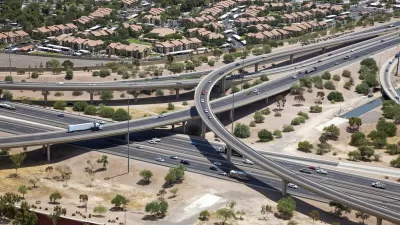
A New Traffic Safety Paradigm
Despite numerous traffic safety programs, traffic death rates have not declined in a decade and recently started to increase. We can do better! A new paradigm identifies additional safety strategies that reduce both crash rates and risk exposure.
Late Buses Threaten Seattle Micro-Unit Development—Guess Why
An approved, 55 micro-unit, mixed-use development with no parking sited on a transit corridor with 15-minute headways has been halted by a legal ruling after neighborhood opponents proved the bus was not meeting its schedule.
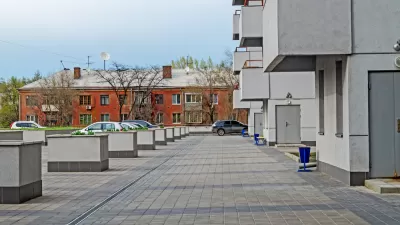
Debating the Relationship Between Compact Development and Driving
Leading researchers debate whether more compact urban development reduces automobile travel in the Journal of the American Planning Association. The issues are complex and important.
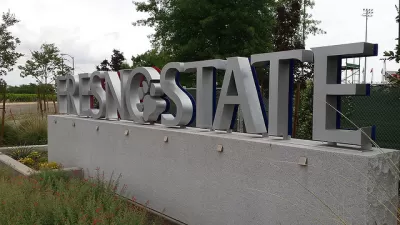
How One University Will Become Less Car-Centric
Fresno State University in California has released plans for a suite of changes that will redefine its approach to transportation—away from a devout focus on cars and toward more transportation options.
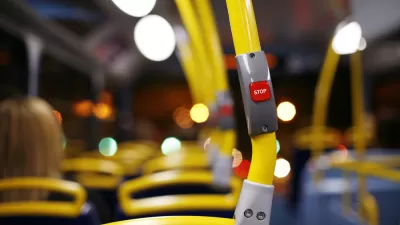
Is it Time to Rebrand 'Transportation Demand Management'?
As people re-evaluate their transportation decisions, the argument to support transportation demand management might not be what policy makers expected.
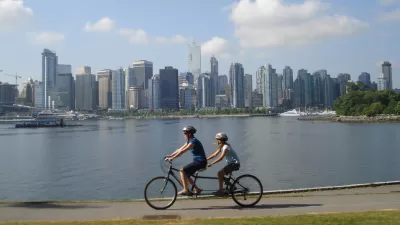
Well Done Vancouver! Well Done Planners!
In Vancouver, British Columbia, dramatic reductions in automobile travel and resulting benefits demonstrate that integrated TDM and smart growth policies can help create cities that are healthy, wealthy, and wise.
Smart Mobility Fosters New Transportation Options
A new Deloitte report evaluates ways that new technologies and mobility services help reduce the need to own and use private automobiles. Helsinki's audacious goal: By 2025, no city resident will need to own a private car.
The First Transportation Demand Management Program for Public School Teachers
In a program called the first of its kind in the nation, the Arlington County will implement a transportation demand management program for public school employees.
Tech-Buses Driving South into Los Angeles
In a new coming-of-age sign for the technology industry in Los Angeles, the San Francisco based start-up RidePal unveiled its first private shuttle bus partnership in LA this week.
Improving Mobility Requires a Multimodal Consideration of Congestion
As urban populations increase and drivers seek to escape crowded commutes, America's urban transit systems are becoming increasingly congested. For TDM professionals to improve mobility for all, they must first change how they conceive of congestion.
Are Transportation Planning Reforms Coercive?
Changing demands justify policies and programs that encourage people too choose efficient travel options and smart growth locations. Are these coercive?
America's Campuses Foment Transportation Revolution
Angie Schmitt looks at how America's institutions of higher learning are embracing progressive transportation demand management strategies to cut costs, expand their footprints, and encourage healthier lifestyles.
New Report Evaluates Transportation Policies for Healthier Communities
Major study by the Partnership for Prevention identifies numerous ways to reduce air pollution, increase physical fitness and reduce traffic risk.
Automobility and Freedom: Conflicts and Resolutions
Much of my work involves developing transportation demand management and smart growth policies which improve travel options (walking, cycling, public transit, carsharing, etc.), reform pricing and transport planning to encourage travelers to choose the most efficient mode for each trip, and create more accessible, multi-modal communities.
Pagination
Urban Design for Planners 1: Software Tools
This six-course series explores essential urban design concepts using open source software and equips planners with the tools they need to participate fully in the urban design process.
Planning for Universal Design
Learn the tools for implementing Universal Design in planning regulations.
Caltrans
Smith Gee Studio
Institute for Housing and Urban Development Studies (IHS)
City of Grandview
Harvard GSD Executive Education
Toledo-Lucas County Plan Commissions
Salt Lake City
NYU Wagner Graduate School of Public Service


































